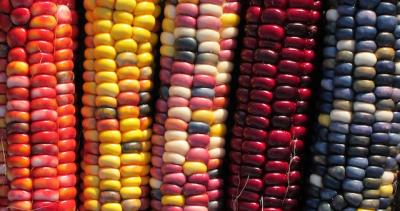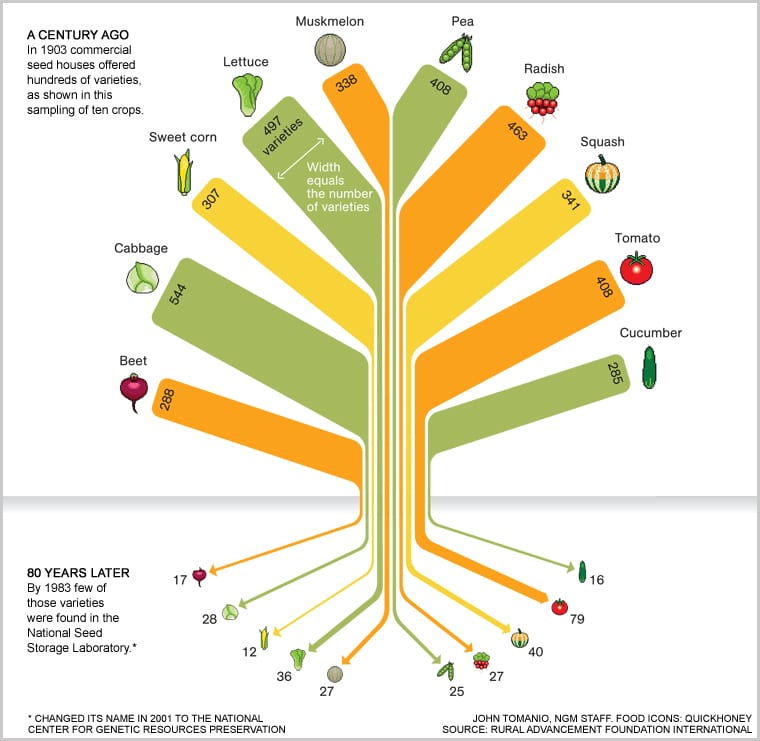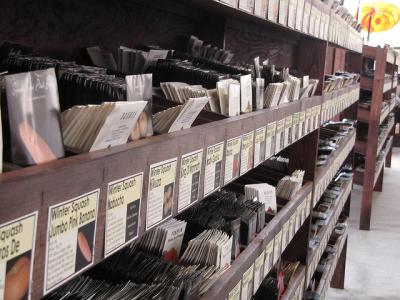

Alex Pietrowski, Staff Writer
Waking Times
Most of the truly important news of our times goes unnoticed, under-reported or ignored by the corporate media, and as they focus on the ever-evolving narrative of human political drama, we are missing opportunities to participate in the most important struggles of our time. Seven generations from now, the destruction of the world’s seed diversity by corporate greed will have a much greater impact on the human condition than as much as anything else we can fathom.
Seeds are absolutely vital to life on earth, but once a crop has gone extinct there is no way to revive it. In the last century alone, the world has lost at least 93% of all seed types, which had been cultivated by individual farmers around the globe for millennia providing a robust array of nutrition and sustenance.
“Few things on Earth are as miraculous and vital as seeds. Worshipped and treasured since the dawn of humankind, these subtle flecks of life are the source of all existence. Like tiny time capsules, they contain the songs, sustenance, memories, and medicines of entire cultures. They feed us, clothe us, and provide the raw materials for our everyday lives. In a very real sense, they are life itself.” [Source]
This infographic gives a startling sense of just how many varieties of seeds we’ve already lost since the early 1900’s alone.
A New Type of Agriculture
A major part of the problem is the shift toward industrial, corporate sponsored agriculture and monocultures which is now heavily dependent on corporate seed manufacturers who have through corporate business practices consolidated the seed industry and recruited the enforcement of government policy to ensure that farmers have few choices.
“Once considered to be the property of all, like water or even air, seeds have become largely privatized, such that only a handful of companies now control the global food supply.
Agriculture has been around for 10,000 years, but the privatization of seeds has only occurred very recently. In that short time, seed diversity has been decimated, farmers have been put out of business due to rising seed costs… and the pesticide companies that control most seeds today have flourished.” [Source]
In addition the rise of genetically modified seed has given corporations the power to patent seed, which is literally patenting life itself. Today, the seed industry is much like the corporate media, entirely owned by just a handful of transnational corporations.
“In 1996, there were still about 300 independent seeds companies left in the US. By 2009, there were fewer than 100.8 With the rise of GM crops and seed patents, meanwhile, the pesticide industry has been snapping up an ever-growing share of the seed industry.
Just four agrichemical companies own 43 percent of the world’s commercial seed supply, and 10 multinational corporations hold 65 percent of global commercial seed for major crops.” [Source]
READ: Handy List of Monsanto Free Seed Companies
The Solution
Of all the burgeoning and seemingly too big to approach problems emerging in our world, saving seeds is actually one of the few that anyone can participate in, and there is a growing revolution to bring back small farm and home garden farming. Gardening and seed saving is fun, very fulfilling, and you get free fruits and vegetables. There is an abundance of online resources to help even the nive gardener participate.
READ: The Online Seed Saving Handbook
Another positive solution to this problem is the proliferation of seed libraries, an open-source and community-friendly way of saving and sharing seeds for the benefit of all. However, in recent years, big government has extended its control even into the world of seed libraries and the U.S. Department of Agriculture has been cracking down on and closing local libraries, and communities are having to fight for the right to share.
Final Thoughts
If enough ordinary, conscious people make the shift and begin gardening and saving seeds, we can quickly change the course of the history, providing future generations with the freedom inherent in the access to home-grown, nutritious foods. On the other hand, if this effort is left to corporations like Monsanto and the global elite, then only the rich will have quality foods in the very near future. Already, a Doomsday Seed Vault has been constructed and stocked in the frozen wilds of Norway, supported in part by Bill Gates and the titans of GMO’s. In a dark future, this seed will be reserved, and thus life itself reserved, for the rich.
A new documentary aims to bring awareness to the issue of seed extinction and inspire people to make a difference by participating in the global effort to save seeds. Watch the trailer for the upcoming film here:
Read more articles by Alex Pietrowski.
About the Author
Alex Pietrowski is an artist and writer concerned with preserving good health and the basic freedom to enjoy a healthy lifestyle. He is a staff writer for WakingTimes.com and Offgrid Outpost, a provider ofstorable food and emergency kits. Alex is an avid student of Yoga and life.
This article (The World’s Food Seeds are Going Extinct, but You Can Help) was originally created and published by Waking Times and is published here under a Creative Commons license with attribution to Alex Pietrowski and WakingTimes.com. It may be re-posted freely with proper attribution, author bio, and this copyright statement.
http://www.wakingtimes.com/2016/09/20/worlds-food-seeds-going-extinct-can-help/



